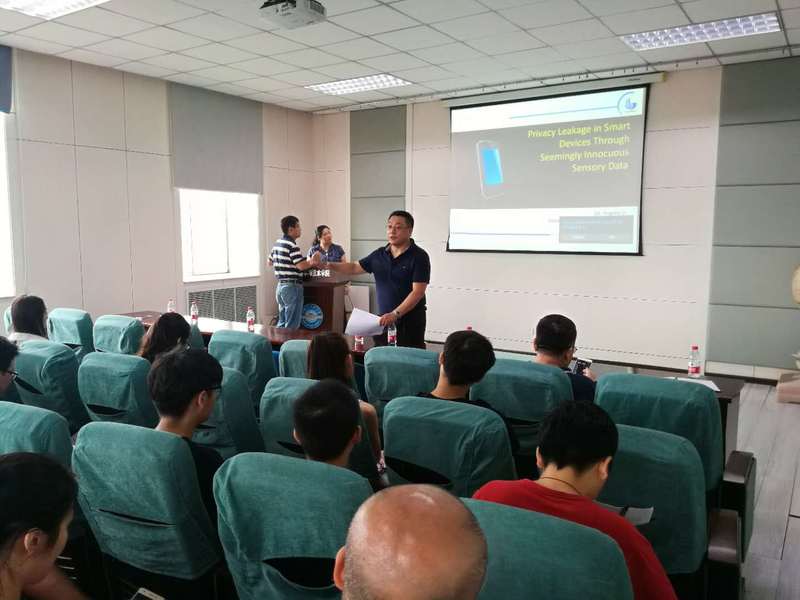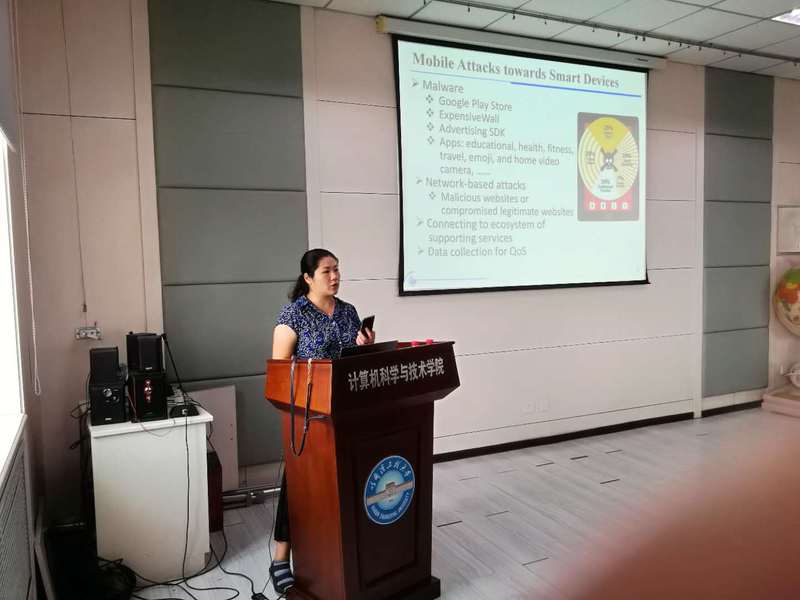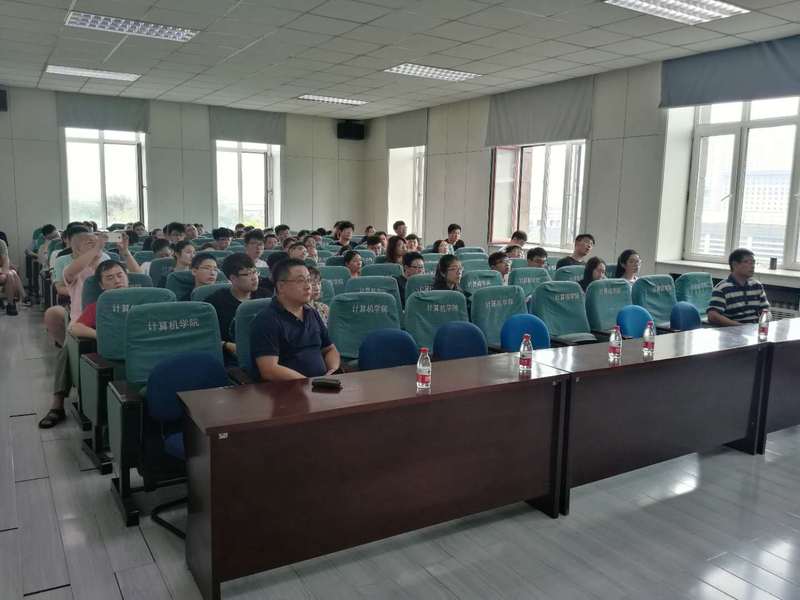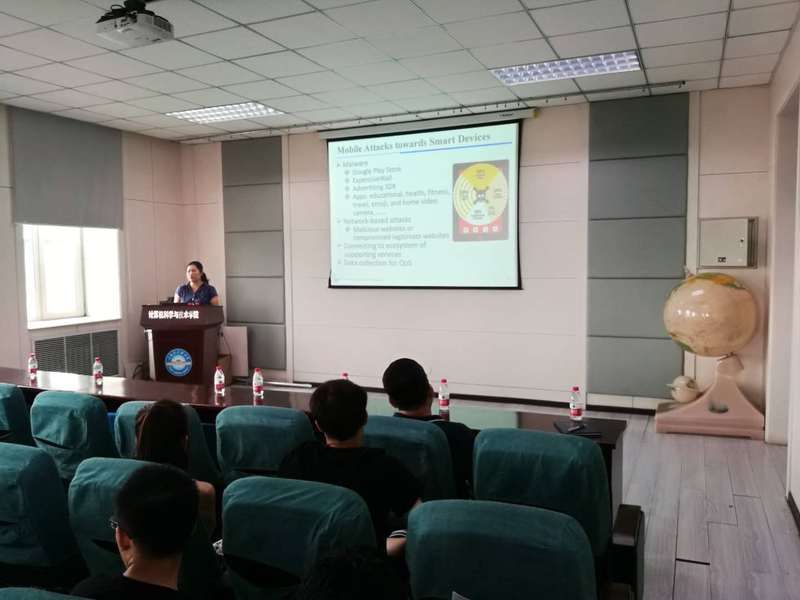研讨会“学萃讲坛”秉承学名家风范、萃科技精华的理念,以学术为魂,以育人为本,追求技术创新,提升学术品位,营造浓郁学术氛围,共品科技饕餮盛宴!
时 间:2018年7月13日9:30-12:00
地 点:21#426多媒体教室
主办单位:科学与技术研究院
承办单位:437必赢会员中心
报告题目:Privacy Leakage in Smart Devices Through Seemingly Innocuous Sensory Data
报告人:Dr. Yingshu Li
报告人简介:Dr. Yingshu Li received her PhD and MS degrees from the Department of Computer Science and Engineering at University of Minnesota-Twin Cities. She received her BS degree from the Department of Computer Science and Engineering at Beijing Institute of Technology, China. Dr. Li is currently an Associate Professor in the Department of Computer Science at Georgia State University. Her research interests include Wireless Sensor Networks, Big Sensory Data Management, Privacy-aware Computing, Smart Cities, Social Networks, and Wireless Networking. Dr. Li is the recipient of an NSF CAREER Award. She has published more than 150 papers including 20 ACM/IEEE Transactions papers. Her publications have received almost 6000 citations and her h-index is 35. Dr. Li has served as an associate/guest editor for several prestigious journals including IEEE Transactions on Computers, ACM Transaction on Senor Networks. IEEE Internet of Things Journal, etc. Dr. Li was the steering committee chair for the international conference WASA and will be the program chair for COCOA 2019 and IPCCC 2018.
报告简介:Smart devices and mobile apps are rolling out at swift speeds over the last decade, turning these devices into convenient and general-purpose computing platforms. However, smart devices also bring risks of privacy leakage. Sensory data collected from smart devices are important resources to nourish mobile services, and they are regarded as innocuous information which can be obtained without user permission and awareness. In this talk, two privacy issues caused by sensory data collected from smart devices will be addressed. The first one is location privacy leakage. The second one is deep learning based inference of private information. For the first issue, it is shown that only by using the data collected from the embedded sensors in smart devices instead of GPS data, a user's location information can be inferred with high accuracy. For the second issue, it is shown that the seemingly innocuous sensory data could help with infer users' tap positions on the screens of smart devices by employing some deep learning techniques. The tap stream profiles for each type of apps can then be derived so that a user's app usage habit can be accurately inferred. Furthermore, it is shown that users' app usage habits and passwords may be inferred with high accuracy.
首先,科研副院长韩启龙教授向与会人员介绍李教授简历,针对学院与佐治亚州立大学在学生培养、科学研究等方面开展的合作进行了回顾和展望,并就交流内容向与会人员进行了提醒,要求双方交流要紧密围绕学术、科研开展。李教授结合其实验室目前的研究内容展开讲解,从数据隐私保护的重要性、研究背景、研究方案等方面详细的说明了当前移动设备安全保护方面的漏洞和急需解决的问题。报告环节之后,李教授同与会人员开展互动交流,与会教师同学踊跃提问,李教授均一一耐心回答,本次学术报告使必赢官网师生及时了解到国际最新研究动态,对开展科研工作起到积极的促进作用。




“学萃讲坛”秉承学名家风范、萃科技精华的理念,以学术为魂,以育人为本,追求技术创新,提升学术品位,营造浓郁学术氛围,共品科技饕餮盛宴!
